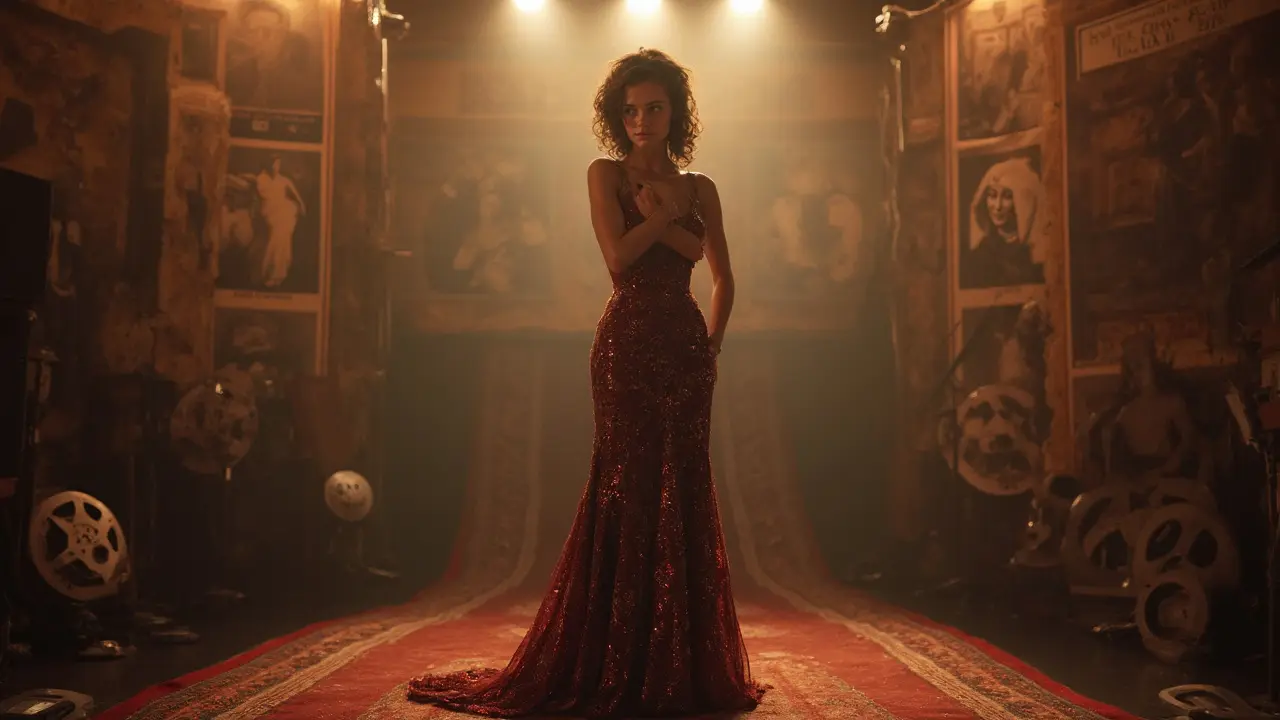
If you lived in Italy in the 1990s, you know the name Selen. It didn’t matter if you watched her movies or not—she was everywhere. Her face was on prime-time talk shows, magazine covers, the radio, the whole package. Ask anyone over forty in Rome; they’ll grin and nod, like you just brought up an old mischievous friend. Selen isn’t a fictional star. Her real name is Monica Cattarossi, and her story is wilder than most legends. She redefined what it meant to be a celebrity in Italy: unapologetic, magnetic, and impossible to ignore. Whether you cheered her career or criticized her, she made an entire country rethink fame, beauty, and even shame. This is the story of the woman Italians call the Roman Queen of Cinema.
How Monica Became Selen: An Unlikely Beginning
What’s wild is that Monica’s start looks nothing like the superstar she became. Born in Rome in 1966, Monica Cattarossi grew up in a regular Italian family—a mix of warm dinners, gossiping relatives, and the usual chaos. She didn’t plan to be the spotlight, and her early ambitions circled around classic dreams: a stable job, maybe a home in the city, a family. She studied to become a dental technician, of all things—not exactly the glamorous path you'd imagine for someone who’d rule Italian headlines. In her late teens, she started modeling for fun to pocket a little extra cash. Italy in the ‘80s was obsessed with beauty contests, and Monica’s dark hair, bright eyes, and sly smile quickly turned heads.
The transition from modeling to stardom took a jump. Her first magazine photo shoots teased with an edge of rebellion—the kind of Italian youth wanting to break out of the mold. Around 1991, Monica dropped her given name and chose something unforgettable: Selen. She picked it because of Selena Kyle, Catwoman from Batman, whose confident sexuality and untameable spirit she admired. With her new name, Monica got noticed by Riccardo Schicchi, the kingmaker of Italy’s adult film industry. Back then, this was an underground scene. The '90s were a weird time in Italy: Catholic tradition clashing with modern TV and hyper-sexualized pop culture. Schicchi saw that Monica wasn’t just another pretty face—she had a quick wit, a smart tongue, and charisma that makes you stop what you’re doing. She became Selen, and the transformation was instant. Her debut in "Signore Scatenate" (1993) sent ripples through Italian cinema. Selen didn’t just act—she owned every frame, a balance of sensuality and humor.
One often misunderstood fact about Selen is how she leaned into scandal with a mix of cheekiness and brains. She wasn't about being submissive or silly. She played characters brimming with confidence. Many thought of her as an 'anti-diva’—no fake smiles, no fairy tales. She built a brand out of honesty and irony, and audiences across Italy loved it. Her ascent signaled a cultural shift: Selen made it okay for women to be bold, sexual, and clever on their own terms.
Selen Rules Screens and Headlines: Icon Status Earned
What makes Selen fascinating isn’t just her films—it's how she blurred the lines between celebrity culture, scandal, and art. Let’s be honest: the 1990s in Italy were a circus of tabloid drama. Everyone was obsessed with TV stars, game show hosts, singers, and now—adult film queens. Selen didn’t just ride the wave; she was the wave. Her films shattered box-office records for the industry; one of her most famous works, "Gocce di Piacere", was the talk of the country for months. But she was never a puppet for producers. Selen picked her roles, steered her image, and made sure she didn’t become just another disposable star.
She broke into mainstream TV—a place traditionally reserved for the clean-cut and predictable—in the late '90s. Selen showed up as a commentator on shows like Maurizio Costanzo’s talk show. She was funny, self-deprecating, and sharp. Italians fell in love with her honesty. When asked about her career, she answered without shame. She called the adult world "just another job," and her candor disarmed critics. Selen’s legacy isn’t just about her roles on film; it’s the way she turned the word “scandal” into “empowerment.” Other actresses started following her lead: control your story, don’t let anybody else shame you for it, and above all, own your decisions. Selen wasn’t just good at grabbing attention—she was good at keeping it with her wit and style.
Her appeal reached far past the adult film crowd. She became a pop culture icon, turned into a meme before memes were a thing. Tabloid photographers trailed her every step: arriving at film premieres, grocery shopping, strolling the streets of Rome. Magazine profiles dug into her childhood, tastes, and dreams. She influenced not just film, but music videos, fashion ads, and even inspired graphic novels. There’s even an Italian cocktail named after her—ask for a “Selen” in a few late-night bars and see what they mix up. She redefined what



